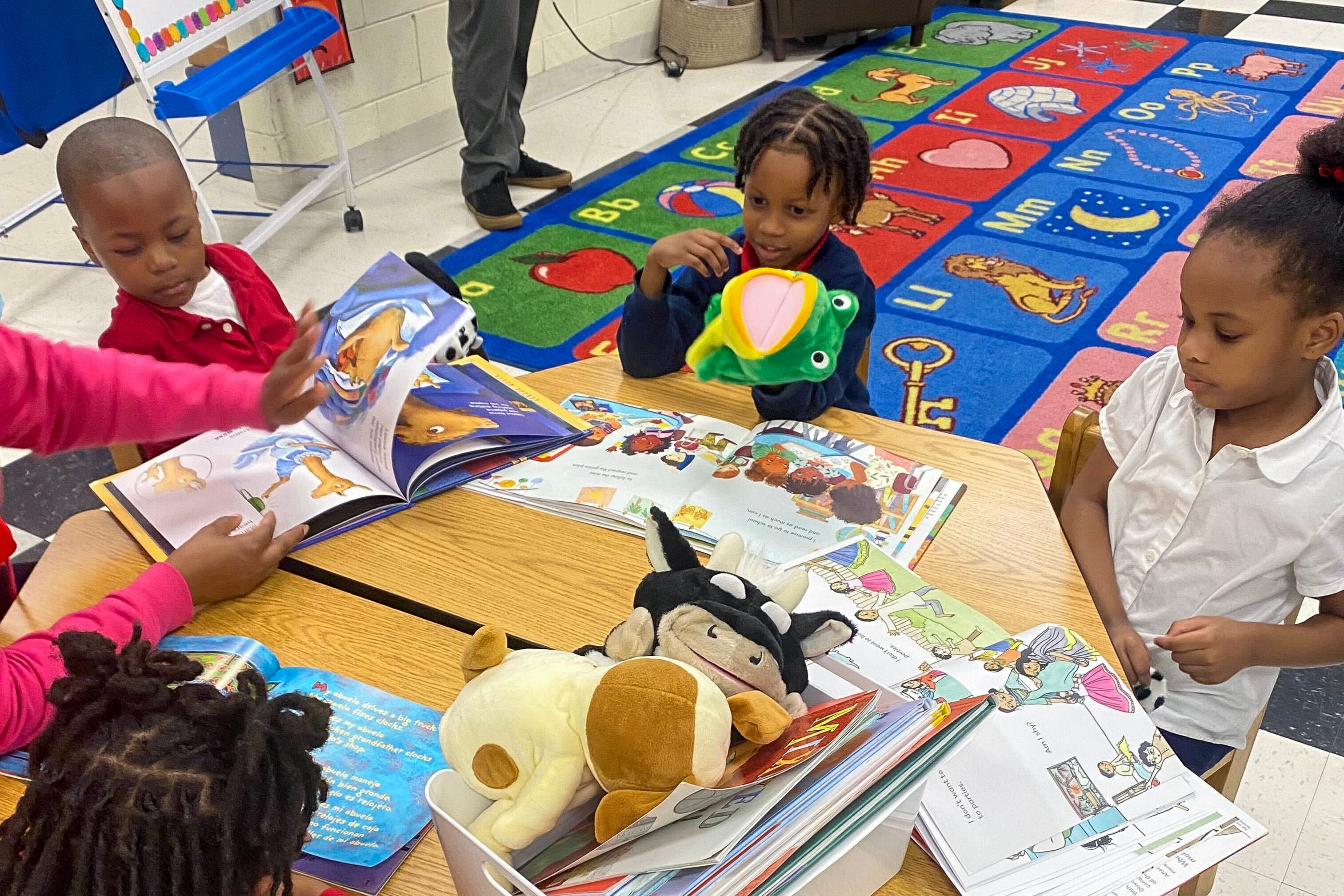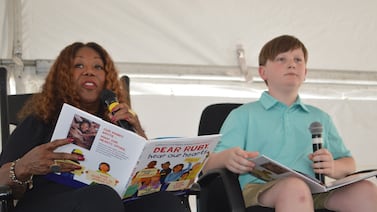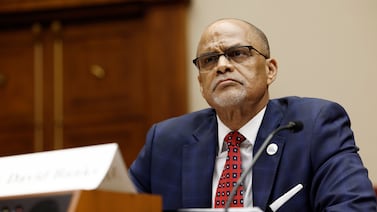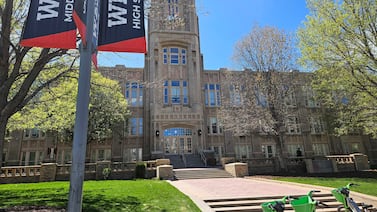With $94 million earmarked for the Detroit school district to improve student reading levels in the next three years, district board members are eager to see that money spent toward ambitious ideas to grow literacy awareness across the city.
At a retreat for the Detroit Public Schools Community District school board on Tuesday, members discussed using the funds for staffing, professional development, and community engagement.
“I want us to do something that is life-changing and very innovative,” said board member Sherry Gay-Dagnogo, who suggested the district could create a “citywide campaign to help remove the stigma of illiteracy for adults” or partnerships with maternal health programs and early childhood centers to help educate families about literacy before their children arrive to the district.
“We got one shot at it,” Gay-Dagnogo said. “Impacting the children that get to us at K-3 is not enough.”
Board President Angelique Peterson-Mayberry agreed that the district should adopt an innovative approach, suggesting that some of the funds could go toward training high schoolers to teach basic reading to younger students.
Improving reading skills among Detroit schoolchildren has been a large concern for school officials, families, and community advocates over the past several decades. Reading scores for Detroit students have ranked among the lowest in the nation over the past decade and a half.
In 2016, Detroit students filed a lawsuit against the state of Michigan, claiming they were denied access to a basic reading education while DPSCD was under emergency management between 2009 and 2016. A 2020 settlement in the case called for the creation of two Detroit-based education task forces and reserved $94 million in state money for DPSCD to support evidence-based literacy interventions.
Those dollars must be spent by the fall of 2027, but not before DPSCD officials and the full board hear community input. Tuesday’s retreat was the first time the board discussed this in a public forum and came after six community meetings held by the Detroit Literacy Equity Task Force, one of the two groups created by the settlement.
Those meetings, which took place between August and October, invited families, educators, and community members to give input about the ways DPSCD can improve student literacy levels using the settlement dollars.
As part of its broader literacy instruction plan, DPSCD has already prioritized teaching grade-level assignments and materials regardless of a student’s reading proficiency, small-group instruction, and targeted intervention for students significantly below grade level. The settlement restricts how the money can be spent, but it could go toward hiring support staff, reducing student-to-teacher ratios, and increasing classroom materials, among other strategies.
Superintendent Nikolai Vitti said he could support new solutions such as a citywide awareness campaign or offering at-home, one-to-one literacy support for students via Zoom or Microsoft Teams.
However, some board members were cautious about investing those dollars without addressing one of the district’s primary challenges: getting kids to school.
“When we talk about a citywide campaign around literacy, it feels like it should be a citywide campaign around attendance, and why it matters,” said board member Sonya Mays, who noted that district data has shown students who regularly attend school perform better on standardized tests.
“I always feel like that’s the elephant in the room when we’re coming up with these strategies,” Mays said. “One of the things that I walk away from that data saying to myself is the things that we’re doing are working if you’re coming to class.”
Detroit has had a decades-long issue with ensuring students come to school consistently. The district’s chronic absenteeism rate, in which students miss 10% or more of the school year, was 66% last school year but was as high as 77% in the 2021-22 school year, and upwards of 50% pre-pandemic.
Vitti said it could be possible to include messaging around student absenteeism in a literacy campaign, but cautioned that the settlement is restrictive about what the district can spend its money on.
“The things that go the longest distance with addressing chronic absenteeism, we couldn’t use this money for,” he said.
Without reinventing the wheel, Vitti added, the district could best use the settlement funds to improve on its current practices, such as hiring more academic interventionists, offering stipends for educators and parents to participate in professional development training and school-based literacy programs, and expanding after-school and online tutoring.
“You don’t always want to go chasing the shiny new thing,” he said. “There is a certain way to teach children how to read and that’s about training. It’s about refinement. It’s about producing the numbers so you can go deeper with the intervention process.”
The district’s current academic intervention strategy prioritizes students in grades three through five, Vitti said, but the settlement funds could help the district target early elementary students in kindergarten through second grade.
With all of its meetings completed, the Detroit Literacy Equity Task Force plans to present its final recommendations to the school board by the last week of November.
According to Vitti, community members largely spoke in favor of early elementary reading interventions, smaller class sizes, culturally responsive library books, tutoring, and parent engagement around literacy.
Following Tuesday’s retreat, DPSCD officials will have more opportunities to gather community input on how to spend the settlement funds through public engagement sessions set to take place later this month and in December.
By next year, board members will begin to discuss recommendations in the academic and finance committees, before final recommendations will be made to the board by the February or March school board meeting, Vitti added.
Ethan Bakuli is a reporter for Chalkbeat Detroit covering Detroit Public Schools Community District. Contact Ethan at ebakuli@chalkbeat.org.







